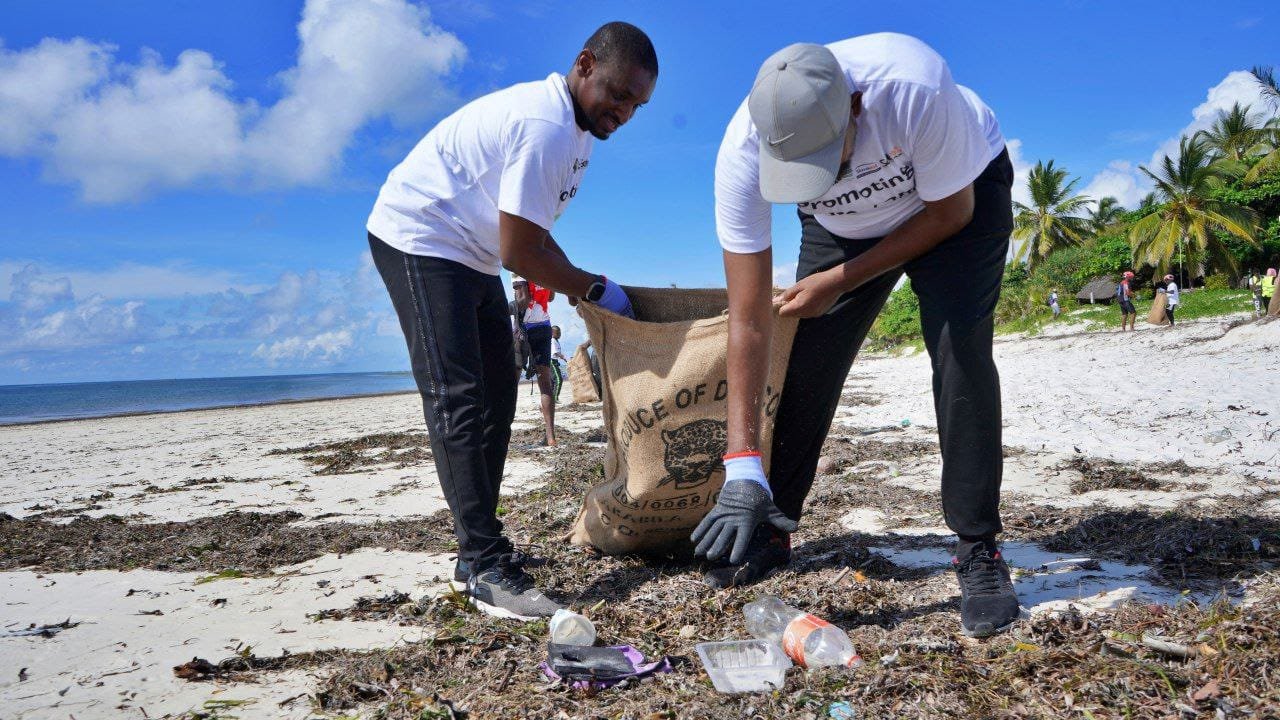Stakeholders in environmental conservation have intensified calls for the conservation of oceans to prevent plastic pollution which continue to adversely affect marine life.
The efforts saw Sote Hub, a business innovation hub, in partnership with the County Government of Mombasa organize a beach clean-up exercise in Nyali Beach to raise awareness on the menace.
According to county executive member in charge of climate change Emily Achieng, the exercise is a build-up activity ahead of a Blue Economy summit that seeks to position Mombasa as a blue economy hub in the wake of climate change.
“Our corals have been affected and fish have significantly reduced because of waste, especially plastic that finds its way to the ocean.This is a campaign that will be ongoing. We have support from non-state actors who will ensure clean-ups are organized regularly,” said Achieng.
At the same time, she revealed that they are finalizing the beach management Bill that will give responsibilities to hotels, commercial enterprises, and groups working at the beach to ensure their beach areas are clean.
The county government is also working with partners to quantify the amount of plastic getting into the ocean.
“We are also working with packaging companies so that their contribution towards produce responsibility can be used to support groups engaging in environmental conservation,” said CECM Achieng.
Mohamed Hussein Mohamed County Executive Committee Member of Lands, Physical planning, Housing and Urban renewal who also took part in the Beach clean-up exercise said the clean-up campaign seeks to prevent pollution through sensitization of locals on conservation through beach clean-ups.
The CECM said, the launched beach clean-up awareness campaign targets communities living along the coastal line and visitors frequenting the beaches on the importance of disposing plastic waste appropriately. He said there was an urgent need to explore new and existing legally binding agreements to address marine plastic pollution.
The CECM further said since most plastic debris found in the ocean originates from land, it is important to curb illegal dumping on land.
On his part, David Ogiga Director of Sote Hub says it is a wake-up call for hotels and establishments that depend on tourism and sustenance of the ocean to embrace alternative packaging, especially for water and beverages since plastics end up in the ocean.
“It is recorded that we have close to five trillion tonnes of plastics in the oceans and every year close to ten million plastics are dumped into the ocean,” said Ogiga
“The ocean is important for two things: it is the sequester that gives us the oxygen that we breathe; nearly half of the oxygen we breathe as humans and organisms 50 percent of it comes from the ocean,” he added.
The Ocean, he said, is a carbon sink and all the waste and debris end up in the ocean. Because plastics are non-biodegradable when the fish eat them they end up in the human food chain.
The hotel establishments were urged to start investing in recycling plants and to borrow best practices from hotels in Diani, Kwale County.
“It is our responsibility to keep the ocean clean, stopping plastic pollution is our collective responsibility. As we join hands and work as a whole everything will be okay,” said Sherry Siso reigning Miss Water Kenya.
|
|




